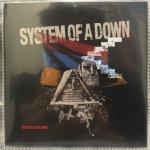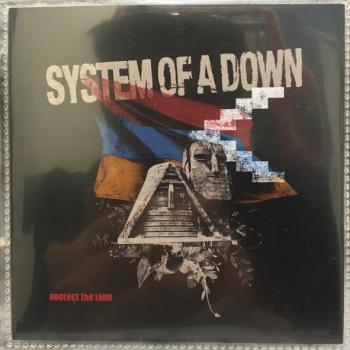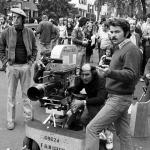In 1993, George Ritzer published a groundbreaking book, “The McDonaldization of Society”. This work drew critical attention through the academic centers, and from those socially aware. Yet, a populist majority remained blind to this analysis of economy, work/labor, sociology, and – ironically – consumption. Applying an apologetic deconstruction analysis with this [paradigm shifting] work, a post pop culture question lingers, from a faith-based perspective, “is there a phony populist perspective in practice?”
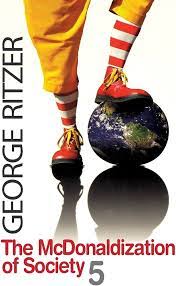
George Ritzer, book cover, 2007. https://en.wikipedia.org/wiki/The_McDonaldization_of_Society
Yeah, I’m a great quitter. It’s one of the few things I do well. I come from a long line of quitters. My father was a quitter, my grandfather was a quitter. I was raised to give up (Seinfeld 1989-98)
Taking this perspective – from the TV show Seinfeld – and accepting it as a principle, an excuse for a life less lived, a barebones reality provides agency for a mega-conglomerate, corporate-driven, capitalist ideology to embrace this identity. Yes, this lack of core values, lack of faith, and absence of a meaning of self, welcome a coined trajectory, “don’t worry, ‘You Can Have It Your Way’ (Burger King slogan, 1974)”.
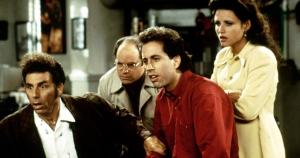
Scary Mommy, NBC, October 25, 2019/August 3, 2021. https://www.scarymommy.com/seinfeld-quotes
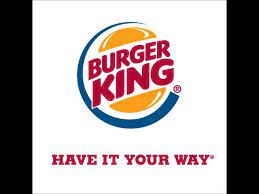
Burger King, Logo, 1973.
https://www.youtube.com/watch?app=desktop&v=DlYGjeM3-UE
Following this line of self-defeat, Seinfeld further notes, “What am I scared of? I’m scared of the same thing that you are, everything (1989-98).” Again, this invites an agent of corruption to overtake a minimal value of self. McDonald’s – and their rival fast-food businesses – take full advantage of this meaningless. The not-so-ironic turn of events through this cultural dialectic is that this becomes a circular argument; lack of self is accepted by pop culture so that pop culture can build an infrastructure to provide a quick, temporary, empty solution to the immediate moment; satisfying the minimal expectations of the self through a prepackaged, determined and rapid-fire delivery, the self becomes addicted to external solutions, and therefore confirms the security and productivity of a dominant capitalist machine. So, in this rat race, in this cat-and-mouse interplay, where is faith? How is, by these contemporary celebrated lacking moral integrity times of spiritual demise can one even begin to recognize spiritual truth?
Settling for a life absence of faith, we – the populists – level ourselves toward a broad socio-linguistic script, borrowing from Hip Hop culture, “the home of the freebie, the give-me, the quickie; the land of the (still) mental slaves”.
In the song by Gil Scott Heron (January 1, 1971, Flying Dutchman Records) and the 2003 film by Kim Bartley and Donnacha O’ Briain by the same name The Revolution Will Not Be Televised, the anthem and call to action is direct, clear, and without apology – live a life critical of local/national/global deceit, and seek to live by faith. The apologetic application to this point further aids in aligning one’s viewpoint toward their own self-acknowledgment, an honest acknowledgment, of how the surrounding daily matters affect, effect and/or derail the focus upon core progress and foundation of faith.
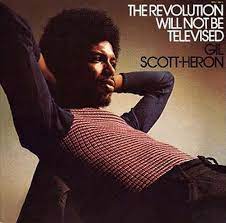
Gil-Scott Heron, album cover, 1971
https://www.pinterest.com/pin/716916834456801415/
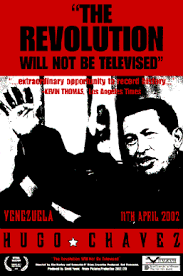
Wikipedia, Film Poster, 2003.
https://en.wikipedia.org/wiki/The_Revolution_Will_Not_Be_Televised_%28film%29
The argument is, “how do the populist negotiate menial life temptations and replace this with the agency of a faith-based foundation?” To provide an epistemology framed by the scaffolding of the apologetics and deconstructive theory, I coin the terms, I was Sienfelded or, I am Sienfelded. An overly simplistic analysis of the lack in a trajectory of life; to endure a life lacking substance with the principle of meandering thoughtlessly through daily life absent of the desire to embark upon a path of self-development. A living devoid of spiritual trust, an openness or welcoming identity to embrace faith. The acceptance of faith is the agency for self-identity change in counterpoint to pop cultural social media pitfalls. Recognizing this methodology is important. Capturing this process is necessary. Fostering this activation in life is critical.
alanlechusza.com
alanlechuszaauthor.com
Pathos.com/thesweatpantssessions
Sources
Bartley, Kim and Donnacha O’Briaian. The Revolution Will Not Be Televised. 2003. https://www.imdb.com/title/tt0363510/
Business Casual. McDonald’s: The Origins of a Fast Food Empire. June 14, 2017.
https://www.youtube.com/watch?v=aIgmMXZ7008
Carmichael, Evan. How the McDonald/s EMPIRE was BUILT!. July 21, 2010.
https://www.youtube.com/watch?v=FTjxD_G_v0s
Daily Motion. Inside the McDonald’s Empire (Documentary), 2017.
https://www.dailymotion.com/video/x2xrsh5
Heron, Gil-Scott. The Revolution Will Not Be Televised. Pieces of a Man, RCA Studios, New York, April 19, 1971.
Nelson Alex. 64 of the funniest quotes to sum up everyday life as the sitcom turns 30. inews, July 12, 2019/October 8, 2020. https://inews.co.uk/light-relief/jokes/best-seinfeld-quotes-anniversary-kramer-george-152940
Quintanilla, Carl. CNBC, Big Mac – Inside the McDonald’s Empire. July 25, 2007.
https://www.cnbc.com/big-mac-inside-the-mcdonalds-empire/
Ritzer, George. The McDonaldization of Society. Los Angeles: Sage, 2013.
https://www.thoughtco.com/mcdonaldization-of-society-3026751


